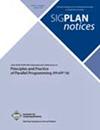DisCVar
Q1 Computer Science
引用次数: 2
摘要
激进的技术扩展趋势使得高性能计算(HPC)系统的硬件更容易受到故障的影响。其中一些故障可能导致静默数据损坏(SDC),这是一个严重的问题,因为它们会改变HPC模拟结果。在本文中,我们提出了一种称为DisCVar的全覆盖系统方法,用于识别HPC应用程序中防止SDC的关键变量。DisCVar使用自动区分(AD)来确定模拟输出对程序变量错误的敏感性。我们通过将结果与全覆盖的代码级错误注入活动进行比较,以经验验证我们在识别易受攻击变量方面的方法。我们发现,与故障注入活动的结果相比,我们的DisCVar正确识别了对于确保应用程序SDC弹性至关重要的变量,并且具有高度的准确性。此外,DisCVar只需要执行两次目标程序就可以生成结果,而在我们的实验中,我们需要执行数百万次执行才能从故障注入活动中获得相同的信息。本文章由计算机程序翻译,如有差异,请以英文原文为准。
DisCVar
Aggressive technology scaling trends have made the hardware of high performance computing (HPC) systems more susceptible to faults. Some of these faults can lead to silent data corruption (SDC), and represent a serious problem because they alter the HPC simulation results. In this paper, we present a full-coverage, systematic methodology called DisCVar to identify critical variables in HPC applications for protection against SDC. DisCVar uses automatic differentiation (AD) to determine the sensitivity of the simulation output to errors in program variables. We empirically validate our approach in identifying vulnerable variables by comparing the results against a full-coverage code-level fault injection campaign. We find that our DisCVar correctly identifies the variables that are critical to ensure application SDC resilience with a high degree of accuracy compared to the results of the fault injection campaign. Additionally, DisCVar requires only two executions of the target program to generate results, whereas in our experiments we needed to perform millions of executions to get the same information from a fault injection campaign.
求助全文
通过发布文献求助,成功后即可免费获取论文全文。
去求助
来源期刊

ACM Sigplan Notices
工程技术-计算机:软件工程
CiteScore
4.90
自引率
0.00%
发文量
0
审稿时长
2-4 weeks
期刊介绍:
The ACM Special Interest Group on Programming Languages explores programming language concepts and tools, focusing on design, implementation, practice, and theory. Its members are programming language developers, educators, implementers, researchers, theoreticians, and users. SIGPLAN sponsors several major annual conferences, including the Symposium on Principles of Programming Languages (POPL), the Symposium on Principles and Practice of Parallel Programming (PPoPP), the Conference on Programming Language Design and Implementation (PLDI), the International Conference on Functional Programming (ICFP), the International Conference on Object-Oriented Programming, Systems, Languages, and Applications (OOPSLA), as well as more than a dozen other events of either smaller size or in-cooperation with other SIGs. The monthly "ACM SIGPLAN Notices" publishes proceedings of selected sponsored events and an annual report on SIGPLAN activities. Members receive discounts on conference registrations and free access to ACM SIGPLAN publications in the ACM Digital Library. SIGPLAN recognizes significant research and service contributions of individuals with a variety of awards, supports current members through the Professional Activities Committee, and encourages future programming language enthusiasts with frequent Programming Languages Mentoring Workshops (PLMW).
 求助内容:
求助内容: 应助结果提醒方式:
应助结果提醒方式:


